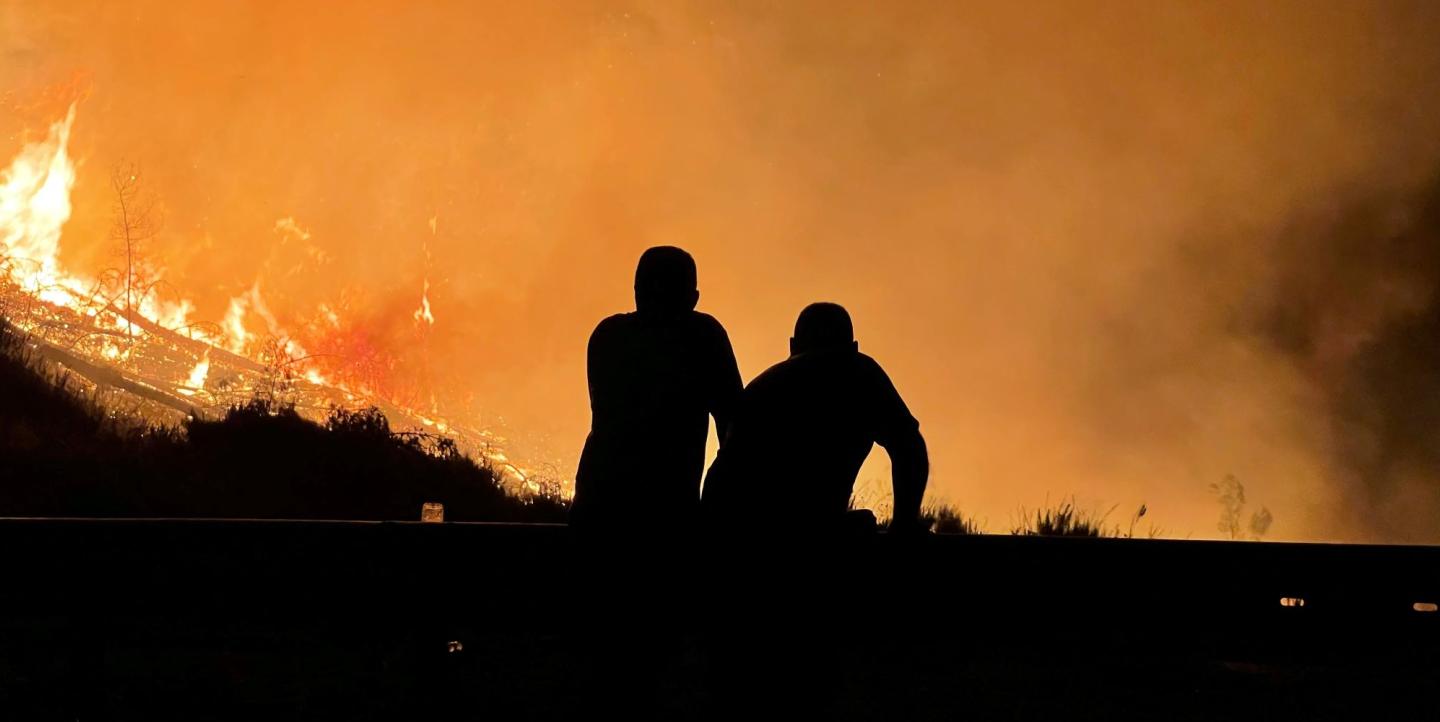2024 年对记者来说是充满紧张与剧变的一年。
全球各地的记者报道了 60 多个国家的选举,其中美国的选举结果将令特朗普于明年 1 月重掌白宫。俄罗斯对乌克兰的战争尚未见曙光,而以色列与哈马斯的战争扩大至黎巴嫩,加深了加萨走廊的人道灾难。极端天气事件对西班牙和美国造成了大规模破坏,让人们意识到气候变化的代价日益恶化。就在过去一个月,随着反抗军攻佔叙利亚首都,阿萨德家族 50 年的铁腕统治终于迎来轰然崩塌的一刻。
儘管很多记者在自己的国家面临政府的打压、公众对媒体的信任度下降,以及网络上传播猖獗的虚假信息,他们仍紧守岗位採取行动,尽责报道这些事件。2024 年对记者来说是充满艰困的一年。
我们透过国际记者网络的危机报道论坛系列持续举办直播培训环节和专家座谈,帮助记者掌握这些重大的全球事态发展。在我们于去年推出的 “IJNet 对话” 系列中,我们联繫了 IJNet 网络中的专家和作者,请他们为记者提供有关新闻业入门的专业知识和实用建议。
以下,我们来回顾一下六场危机报道会议,和四项对记者来说仍具有实践意义的资源:
危机报道相关资源
以色列和巴勒斯坦记者亲述战争报道的重重挑战
以哈战争已持续超过一年。加萨的人道状况持续恶化,特别是在加萨北部,以色列政府阻止部分人道援助,而进入加萨的其他援助物资则遭到武装团体的洗劫,国际组织警告加萨正濒临飢荒。去年春天,声援巴勒斯坦的校园抗议活动席捲了美国大学;秋天,以色列入侵了黎巴嫩南部。伊朗支持的民兵组织真主党和以色列同意在 11 月底停火。
在去年五月,我们访问了三名来自以色列和巴勒斯坦的记者,问及他们跟进冲突事态发展的方式、他们所面临的挑战以及他们对准确和符合伦理地报道这场冲突的建议。
给流散记者的过来人建议
2022 年,俄罗斯全面入侵乌克兰,导致大量独立报刊和记者离开乌克兰。流亡海外的俄罗斯记者继续进行独立报道,加入了全球 “流散媒体” 之列;他们在海外报道的同时,也积极寻找持续接触原居国受众的方法。
IJNet 去年跟流散媒体网络(NEMO)合作创建了流散媒体工具包(包括中文在内的多语言版本),并在 6 月跟 NEMO 两位记者展开了一场对谈。他们为最近踏上流散报道生涯的记者们分享了几点重要建议,包括如何保持流散媒体的财务可持续性、如何接触原居国的受众等等。
全球大选年,来自美洲和欧洲的记者的重点经验分享
去年,全球有超过一半的人口参与了重大选举。我们在 10 月召集了来自德国、南非和委内瑞拉的记者,分享他们在报道自己的国家的选举时的反思和建议。
报道极右翼德国选择党(AfD)的 Laura Goudkamp 表示,记者面临的一个重大挑战,是在准确报道反民主政党的政纲与间接壮大其信息之间取得微妙的平衡。
委内瑞拉记者 Dariela Sosa 也表示:“我们的作用是知会公众,以便他们能作出明智的决定,一旦任何候选人或行动威胁到民主价值时,我们需要找到更好的方式展开有效的传讯。”
迈向以受众为中心的新闻业未来
当记者们努力报道全球危机时,找到如何接触受众的方法同样是关键——特别是很多受众已转向播客等其他信息来源,或乾脆完全不看新闻。
7 月份,新闻炼金术师(News Alchemists)的成员——一群正在重新思考如何让受众重拾新闻的记者们——共同讨论了如何创造一个首要考虑受众的内容需求的新闻业未来。
芬兰广播公司 Yle 的数码服务主管 Annika Ruoranen 表示:“我们需要与人们建立更个人化、更密切的关係,这样才有意义,才能在未来的媒体格局中佔有一席之地,才能与时俱进。”
报道冲突地区儿童与创伤的伦理指引
目前大约六分之一的儿童生活在冲突地区。儘管儿童佔世界人口的 25%,他们几乎佔全球难民的一半。
在报道冲突地区的儿童时,记者需要採取创伤知情报道方式,以免他们在採访过程中、在照片中描绘他们时等情况下受到二次伤害。
“当我们在非常敏感的地区或危机地区工作时,我们的使命和我们的报道不应令儿童的生活变得更加困难。” Tiny Hand 的创始人兼《儿童为先》(Children First)的报道指引的作者 Hadeel Arja 在我们跟达特中心合办的座谈上如此说。
利用开源情报展开调查报道的入门须知
开源情报(OSINT)——意指针对社交媒体、资料库和政府记录中的公开信息所进行的採集和分析——在信息稀少、受控或审查的情况下可以具有重大的价值。今天,不少记者相继利用 OSINT 揭露贪腐、调查战争罪行和反人类罪行,并追究政府和其他权贵黑手的责任。
我们在 10 月跟 Bellingcat 的 OSINT 先行者举办了一次座谈交流环节,深入探讨了两个案例——据称记录了埃塞俄比亚士兵屠杀平民的影片,以及揭露源自俄罗斯佔领的乌克兰领土的非法粮食交易——以展示记者如何使用 OSINT 数据来揭露权贵黑手想要隐藏的重大故事。
“你不必成为技术专才或耗费大量资金才可进行开源调查,” Bellingcat 的首席编辑 Eoghan Macguire 说。“透过简单的线上工具,我们也能做到一些真正强大的事情。”
实用资源
八大解决方案,缓减 GenAI 辅助报道中的性别偏见
自从 OpenAi 于 2022 年 11 月推出 ChatGPT 以来,人工智能一直是新闻机构之间的热话,涉及争论的范围很广,从负面角度(例如它可能会抢走记者的工作或增加虚假信息的传播)到正面的潜在应用(例如简化新闻採集流程和吸引新受众)。
IJNet 撰稿人 Luba Kassova 认为,当今的人工智能至少有一个重大缺陷:它反映了社会本来的偏见,能削弱、扭曲甚至消减某些代表性本已不足的社群之声音,包括女性及有色人种女性。
在本次活动中,她为使用人工智能的记者分享了关于缓减这种偏见的建议,包括从业界层面到记者个人可以採取的行动:
给准记者们的专业投稿提案建议
无论你是刚刚毕业尝试以自由撰稿人身份投稿的新手,还是在职涯中段毅然投身新闻业的专业人士,要获得以作者署名的身份获得发布文章的机会并不容易,有时往往有点不得其门而入的感觉,特别是如果你缺乏过往作品或业内人脉。
IJNet 的长期撰稿人 Cristiana Bedei 整理了一些有用的建议,包括如何在传统媒体之外建立作品履历,如何找到自己独特的故事视角。以下是一些能助你争取第一个成功的投稿提案的实用建议:
演算语:记者们如何规避社交平台审查机制?
“演算语”(algospeak)是一种新兴语言,诞生自规避包括 TikTok 和 Instagram 在内的社交媒体平台难以预测的审查的需要,正在重塑信息在网络上交换和理解的形式。
独立记者 Iris Pase 在工作中经常接触演算语,她在此活动上谈到了关于演算语的基本解说、记者为什麽有需要关注演算语的发展等:
有效报道国际会议的实用建议
从全球气候变化缔约方会议到规模较小、聚焦特定议题的学术会议,这些大会都是记者与受访来源展开对话、寻找新故事等的重要机会。
在此活动中,我们跟来自南非的自由撰稿人 Elna Schütz 讨论了如何充分利用会议时间、让会议体验不那麽让人不知所措的技巧,以及在你的经验中发掘此前并未察觉的隐藏故事灵感:
图片来源:Recep Tayyip Çelik via Pexels


